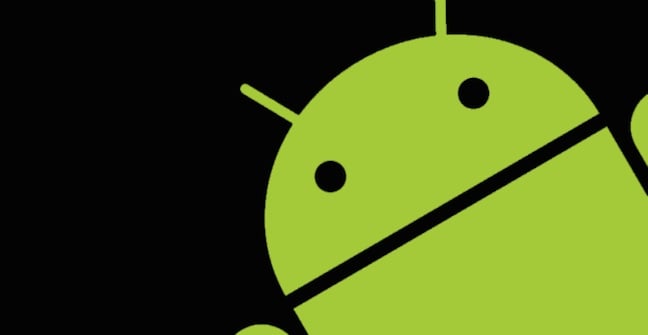Lenovo To Offer Android PCs, Starting With An All-in-one That Can Pack A Core I9

Lenovo has entered the Android PC business.
The Chinese manufacturer that took over IBM's PC business announced on Thursday that it's teamed with an outfit named Esper that specializes in custom cuts of Android, plus device management offerings.
Android is most commonly used in handheld devices. Lenovo's taking it in an entirely different direction by making the ThinkCentre M70a: a desktop all-in-one.
The first fruit of the collaboration with Esper, the ThinkCentre M70a boasts a 21—inch touch screen and offers a choice of 12th-gen Intel core CPUs from the Core i3 to the almost workstation-grade Core i9, at prices from $889 to beyond $1250.
What could you do with Android on a Corei9, plus the maximum 16GB DDR4 3200MHz and 512GB PCIe SSD Lenovo's machines allow?
Almost anything – but Lenovo thinks its Android effort will first be appreciated by customers in the retail, hospitality, and healthcare industries. Esper pitches its wares as ideal for point-of-sale systems, kiosks, and digital signage – environments where users don't need to access diverse apps but do need a machine that reliably boots into custom environments.
As The Register's long-running BORK! BORK! BORK! column amply demonstrated, Windows PCs in public places tend to make Microsoft's failings your problem. Android hopefully offers a less Bork-prone alternative.
- Lenovo PC boss: 4 in 5 of our devices will be repairable by 2025
- Linux on the Arm-based Thinkpad X13S: It's getting there
- Misfiring Lenovo hires Ford director to help with revamp
- Lenovo's Yoga 9 is flexible at home, but stretches the friendship at work
Lenovo's not just doing desktop PCs. The number one PC maker by market share has promised it will also ship Esper's wares on the small form factor ThinkCentre M70q – a machine designed to be bolted to the back of monitors. The ThinkEdge SE30 – a ruggedized and fanless edge client – will also have an Android option.
So will the ThinkCentre M90n-1 IoT [PDF] – another rugged client for edge applications.
"Dedicated devices are proliferating across several key industries," explained Lenovo director of global advanced solutions marketing and strategy Johanny Payero in a canned statement. That missive also refers to analyst research that found Android devices account for 41 per cent of enterprise fleets – well ahead of Windows's 26 percent share, the 24 percent of devices running Apple's iOS and the eight percent Linux presence. Lenovo therefore suggests its customers are happy to run Android, so won't object to the OS on PCs.
Speaking of PCs, demand for the devices remains moderate. Maybe Lenovo hopes Android PCs will create a little extra interest – preferably not at the expense of its own Android tablets and Motorola handsets.
Esper also advocates migrating existing x86 hardware to Android, to extend its life.
Due to Android's FOSS roots, that essentially means more Linux on the desktop – a trend Lenovo is now in a position to accelerate with its Android PCs. ®
From Chip War To Cloud War: The Next Frontier In Global Tech Competition
The global chip war, characterized by intense competition among nations and corporations for supremacy in semiconductor ... Read more
The High Stakes Of Tech Regulation: Security Risks And Market Dynamics
The influence of tech giants in the global economy continues to grow, raising crucial questions about how to balance sec... Read more
The Tyranny Of Instagram Interiors: Why It's Time To Break Free From Algorithm-Driven Aesthetics
Instagram has become a dominant force in shaping interior design trends, offering a seemingly endless stream of inspirat... Read more
The Data Crunch In AI: Strategies For Sustainability
Exploring solutions to the imminent exhaustion of internet data for AI training.As the artificial intelligence (AI) indu... Read more
Google Abandons Four-Year Effort To Remove Cookies From Chrome Browser
After four years of dedicated effort, Google has decided to abandon its plan to remove third-party cookies from its Chro... Read more
LinkedIn Embraces AI And Gamification To Drive User Engagement And Revenue
In an effort to tackle slowing revenue growth and enhance user engagement, LinkedIn is turning to artificial intelligenc... Read more

